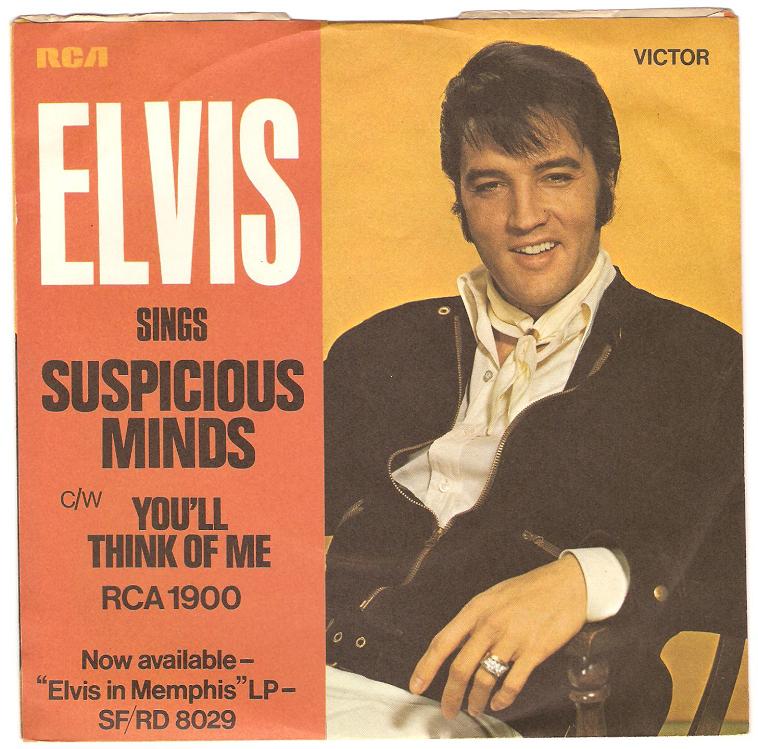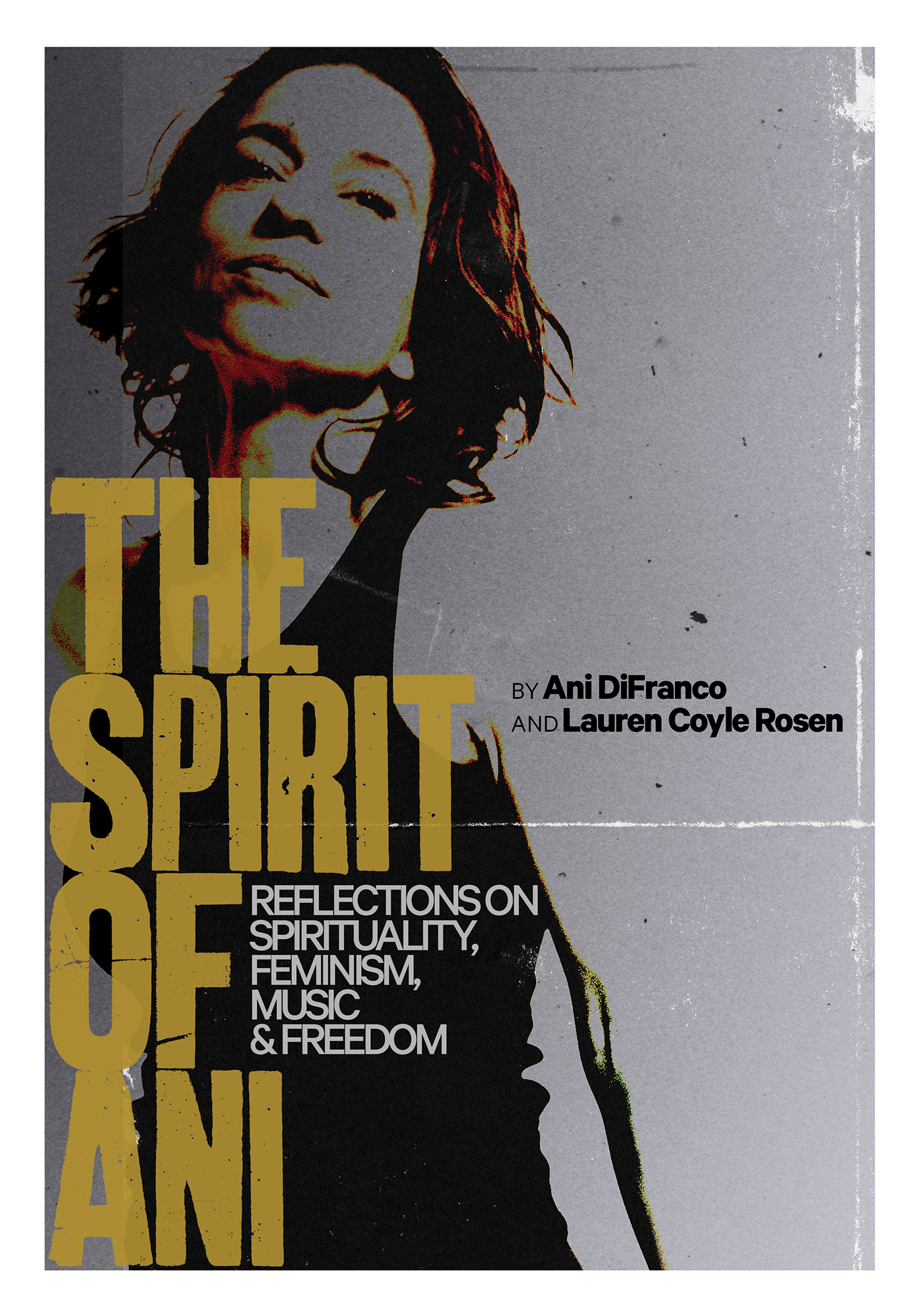In The Number Ones, I'm reviewing every single #1 single in the history of the Billboard Hot 100, starting with the chart's beginning, in 1958, and working my way up into the present.
Elvis Presley - "Suspicious Minds"
HIT #1: November 1, 1969
STAYED AT #1: 1 week
Elvis Presley is nervous. He's sweaty and uncertain, and it takes him a few tries to get the song properly started. The first time, he forgets that he has to be standing by the mic. The second time, he starts giggling after he gets his lip caught on the mic. Maybe he's just not used to being around microphones. He makes fun of his own theatrical sneer: "Did 29 pictures like that, baby." The tape holding his leather jacket to his otherwise-bare chest starts to come loose.
But then, when he finally does lock in, something alchemical happens. He suddenly turns into Elvis again. He weaponizes all that anxious energy, magically transforming it into sex. He falls to his knees, looks the girls in the front row in the eye, gets the screams he was getting a decade earlier. The voice, the poses, the almost-cartoonish levels of foxiness -- they're all back. He's in character once again.
Elvis basically missed the '60s. He started starring in movie musicals almost as soon as he got famous, but eventually, that just became what he did. At first, it was successful, these cranked-out cheapo pictures drawing huge returns and cranking out hit soundtracks. After the Beatles came to America, Presley had only one top-10 single -- 1964's "Crying In The Chapel," a gospel song that he'd actually recorded in 1960. (It peaked at #3, and it would've been a 5.) Nobody was coming to his movies anymore, and nobody was buying the soundtracks. Something had to change. Something did.
Col. Tom Parker had been talking to NBC about the idea of a Christmas special: Elvis onstage singing carols, performing family entertainment. Presley, who hadn't played a live show since 1961, liked the idea of a special, but he did not like the idea of singing Christmas songs. Instead, he wanted to take it back -- to sing his old songs, the way he once had. He got his wish. In that '68 comeback special, Presley sang on a bright, lit-up stage, or he sat in a circle with the members of his old band, playing acoustic. Both ways, he found something magic. And people watched it. On the night of December 3, 1968, 42% of the televisions in America tuned in to watch Elvis become Elvis again.
So Elvis was back. He was playing shows again, opening up a much-hyped residency in Las Vegas. And he was back to making hits. After that '68 special, Elvis once again became a force in pop music. In 1969, he made it up to #3 with "In The Ghetto," a hackneyed and sentimental and exoticizing and weirdly moving fake-soul song. (It's an 8.) And then, a few months later, he climbed the mountain one last time. "Suspicious Minds" is the last of Elvis' 18 #1 singles. It's also one of his best.
"Suspicious Minds" came from the Memphis songwriter Mark James, who was writing about the tension he felt between his wife and his ex-girlfriend, for whom he still had feelings. James had recorded the song himself, and his label expected big things, but it did nothing. Not too long after, though, Elvis returned to Memphis to record some new music for the first time in years. Chips Moman, who'd also produced James' original "Suspicious Minds," was exactly the right person to work with Presley after the '68 special. He'd worked with the Box Tops and Wilson Pickett and Bobby Womack and Joe Tex, and he captured some gutbucket fusion of R&B and rock 'n' roll that honored the legacy of Memphis music while still sounding new. While in Memphis, Presley heard "Suspicious Minds" and figured he could do something with it. He was right. It was exactly the right song for him to record just then.
In James' hands, "Suspicious Minds" was a song about romantic tension. He desperately wants his wife to trust him, even though maybe he's not entirely sure that she can. He knows he's in an untenable position, and he's worried it'll cost him his marriage. The song is built on this barreling orchestral R&B vamp, but there's no confidence in the way James sings it.
That is not how Elvis sings it. Elvis just bulldozes the way through the song, submitting it to his will. On a song about a relationship falling apart, Elvis sounds delighted hamming it up over that great baritone guitar riff and those swelling strings and horns. The whole nature of the song changes. Elvis is telling this unfortunate woman that he's not cheating, but he's lying. She knows it, and he knows that she knows, but he still trusts his otherworldly charisma to carry him through. And he's probably right. This fucker just won't lose. He's not caught in a trap at all.
On the song, Elvis steers all the way into his own old-timey vocal schtick: The hammy runs of gospel melisma, the sneer, the little dips in his voice. He finds all the little climaxes in the song, drawing as much as any human could possibly draw out of the "mmm-mmm, yeah-yeah" on the bridge. That bit isn't an ad-lib; it's on the original song. James just didn't make any impression with it, and Elvis treats it like a fucking fireworks show.
Elvis pushes that charisma so hard, sinking his teeth into that hook and maybe riding it a little too hard. My one real complaint about "Suspicious Minds" is that it goes on a bit too long, Presley repeating that chorus over and over, even through that weird fake-out fade-out that some producer fucked up by putting in.
From there, Elvis would become the parodic pop-cultural figure that people still make fun of now: The Vegas shows, the jumpsuits, the weight gains. Eight years later, he was dead. So even though Presley had more hits after "Suspicious Minds," the song still works as one last glorious burst of brilliance before the decline. But man, what a burst. If you ever wanted to show a skeptic why and how Elvis Presley mattered, "Suspicious Minds" would be a pretty great place to start.
GRADE: 9/10
BONUS BEATS: Here's the cover of "Suspicious Minds" that Richmond, Virginia hardcore heroes Avail, one of my favorite bands of all time, recorded in 1998:
BONUS BONUS BEATS: Here's the extremely 2009 spectacle of Glasvegas and Florence Welch getting together to perform a weirdly joyless and droning version of "Suspicious Minds" at the NME Awards:






